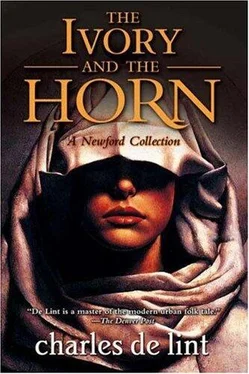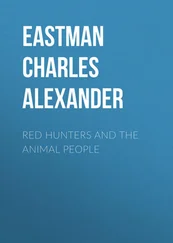"I don't really see how it matters anyway," Sophie told her. "It's the works that's important, in the end. The fact that it's endured so long that we can still enjoy it today, hundreds of years after he died."
"But it's an interesting puzzle,"
Sophie nodded in agreement. "I'll give you that. Personally, I like the idea that Anne Whately wrote them."
"But she was a nun. I can't possibly imagine a nun having written some of the bawdier lines."
"Maybe those are the ones old Will put in."
"I suppose. But then..."
Trailing along behind them, I was barely paying attention and finally just shut them out. My own thoughts were circling mothlike around Titania's final promise:
Hand in hand with fairy grace
Will we sing and bless this place.
That was what I needed. I needed a fairy court to bless my apartment, to lift the cloud of gloom that had been thickening over me throughout the summer until it had gotten to the point where when I looked in the mirror, I expected to see a stranger's face looking back at me. I felt that different.
I think the weather had something to do with it. It rained every weekend and day off I had this summer. It never got hot— not that I like or missed the heat. But I think we need a certain amount of sunshine just to stay sane, never mind the UV risk. Who ever heard of getting cabin fever in the middle of the summer? But that's exactly the way I felt around the end of July— the way I usually feel in early March, when I don't think I can take one more day of cold and snow.
And it's just gotten worse for me as the summer's dragged on.
The newspapers blame the weird weather on that volcano in the Philippines— Mount Pinatubo— and say that not only did the eruption mess up the weather this year, but its effects are going to be felt for a few years to come. If that's true, I think I'll just go quietly mad.
I started wondering then about how the weather affects fairies, though if they did exist, I guess it might be the other way around. Instead of a volcano causing all of this trouble, it'd be another rift in the fairy court. As Titania put it to Oberon:
... the spring, the summer,
The chiding autumn, angry winter change
Their wonted liveries, and the mazéd world
By their increase now knows not which is which.
And this same progeny of evils comes
From our debate, from our dissension,
We are their parents and original.
It certainly fits the way our weather's messed up. I heard it even snowed up in Alberta a couple of weeks ago— and not just a few flurries. The skies dumped some ten inches. In August.
"The seasons alter," indeed.
If there were fairy courts, if they were having an argument, I wished they'd just kiss and make up. Though not the way they did in A Midsummer Night's Dream.
Ahead of me, Sophie and Jilly came to a stop and I walked right into them.
"How's our dreamwalker?" Jilly asked.
She spoke the words lightly, but the streetlights showed the concern in her eyes. Jilly worries about people— seriously, not just for show. It's nice to know that someone cares, but sometimes that kind of concern can be as much of a burden as what you're going through, however well meant it might be.
"I'm fine," I lied. "Honestly."
"So who gets your vote as the author of Shakespeare's works?" Sophie asked.
I thought Francis Bacon looked good for it. After all, he was known as the most erudite man of his time. The author of the plays showed through his writing that he'd had a wide knowledge of medicine and law, botany and mythology, foreign life and court manners. Where would a glove maker's son from Stratford have gotten that kind of experience? But the argument bored me.
"I'd say it was his sister," I said.
"His sister?"
"Did he even have a sister?" Jilly asked.
A black Cadillac pulled up to the curb beside us before I could answer. There were three Hispanic boys in it, and for a moment I thought it was LaDonna's brother Pipo and a couple of his pals. But then the driver leaned out the window to give Jilly a leer and I realized I didn't recognize any of them.
"Hey, puta," he said. "Looking for a little of that kickin' action?"
Homeboys in a hot car, out for a joy ride. The oldest wasn't even fourteen. Jilly didn't hesitate. She cocked back her foot and kicked the Cadillac's door hard enough to make a dent.
"In your dreams," she told him.
If it had been anybody else, those homies would've been out of the car and all over us. We're all small women; Jilly's about my height, and I'm just topping five feet. We don't exactly look formidable. But this was Jilly, and the homie at the wheel saw something in her face that made him put the pedal to the floor and peel off.
The incident depressed all three of us. When we got to my apartment, I asked them in, but they just wanted to go home. I didn't blame them. I watched them go on off down the street, but sat down on the porch instead of going inside.
I knew I wasn't going to sleep because I started thinking about what a raw deal women always seem to get, and that always keeps me up. Even Titania in the play— sure, she and Oberon made up, but it was on his terms. Titania never even realized the crap he had put her through before their "reconciliation."
A Midsummer Night's Dream definitely hadn't been written by a woman.
3
A funny thing happened to me a few years ago. I caught a glimpse of the strange world that lies on the other side of the curtain we've all agreed is reality. Or at least I think I did.
The historical version of what happened is pretty straightforward: I met a street person— the old man on the bicycle that everybody calls the Conjure Man— and he got me to take an acorn from the big old tree that used to grow behind the library at Butler U. He had me nurture it over the winter, then plant it in Fitzhenry Park near the statue of the poet, Joshua Stanhold.
The version he tells is that he's this immortal who diminishes as the years go by, which is why he's only our height now. He was supposed to leave our world when its magic went away, but he got left behind. The tree that came down behind the library was a Tree of Tales, a repository of stories without which wonder is diminished in our world. The one I grew from an acorn and planted in the Silenus Gardens is supposed to be its replacement.
My version... I don't really know what my version is. There was something strange about the whole affair, I'll grant you that. And that little sapling I planted— it's already the size of a ten-year-old oak. Jilly told me she was talking to a botanist who was quite amazed at its appearance there. Seems that kind of oak isn't native to North America, and he was surprised to find it growing in the middle of the park that way.
"The only other one I've ever seen in the city," he told Jilly, "used to grow behind the Smithers Library, but they cut it down."
I haven't seen John— that's the Conjure Man's real name, John Windle. I haven't seen him for a while now. I like to think that he's finally made it home to wherever home is. Behind the curtain, I suppose. But I still go out to the tree and tell it stories— all kinds of stories. Happy ones, sad ones. Gossip. News. Just whatever comes to mind.
I'm not even sure why; I just do.
4
I'm not as brave— or maybe as foolish— as Jilly is. She doesn't seem to know the meaning of fear. She'll go anywhere, at any time of the day or night, and she never seems to get hurt. Like what happened earlier tonight. If I'd been on my own, or just with. Sophie, when that car pulled up, who knows how it would have ended up? Not pleasant, that's for sure.
Читать дальше












